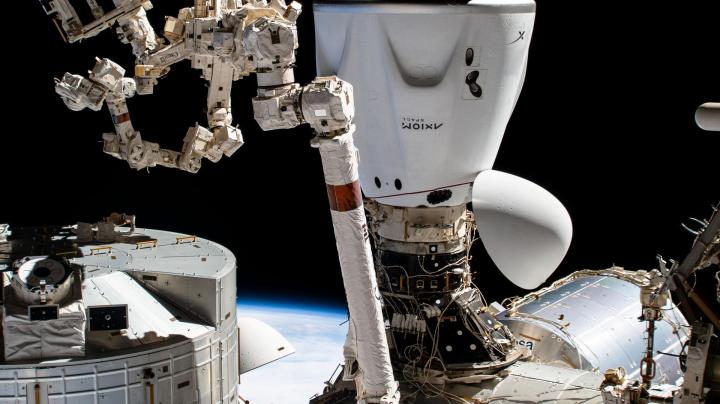Axiom Space will be sending a third private mission to the International Space Station (ISS). Announced this week by NASA, the Axiom-3 mission is scheduled for November of this year and will launch from NASA’s Kennedy Space Center in Florida.
Axiom was responsible for the first tourist mission to the ISS last year, and has a second mission scheduled for the second quarter of this year. It will now be followed by Axiom-3, during which a crew of three private individuals, plus one former NASA astronaut, will spend 14 days at the space station. It will travel using SpaceX’s Dragon spacecraft, and the exact launch date will depend on traffic to the space station.

“Axiom Space’s selection to lead the next private astronaut mission to the International Space Station enables us to continue expanding access to nations, academia, commercial entities, and emerging industries to research, test, and demonstrate new technologies in microgravity,” said Michael Suffredini, CEO and president of Axiom Space, in a statement. “As NASA’s focus shifts back to the moon and on to Mars, we are committed to transforming low-Earth orbit into a global space marketplace, where access to space moves beyond the partners of the space station to nations, institutions and individuals with new ideas fueling a thriving human economy beyond Earth.”
There were some issues with the Axiom-1 mission, as the private astronauts reported on their return that the workload was high and that the pace of work was “frenetic.” This had an impact on the ISS crewmembers’ work schedule, leading to concerns that the presence of private astronauts could be disruptive to the other astronauts there. The rules around private missions to the ISS have since been changed to hopefully mitigate these issues.
Axiom Space astronauts have insisted that they are not space tourists because they perform scientific work on the space station. However, the high costs of a seat on such missions mean that the opportunity to travel on a private space mission will be largely limited to the extremely well-off.



